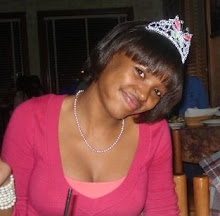Before reading this selection, I would expect the writings to be very against war, especially coming from England, and that's what I tended to find especially from writers like Siegfried Sassoon and Wilfred Owen. It is there use of an imagery that shows the horrors of war that makes them stick out so much to me. But there were also others who actually served in the war, or ended up serving like Rupert Brooke whose "The Great Lover" and "The Soldier" ended up being almost like his dying wish: written a year before his death in the war.
Wilfred Owen and Siegfried Sassoon both felt that sending men off to die in battle was a horrible thing to do. Upon looking at Sassoon's "Glory of Women," you would expect the poem to praise the virtues that women uphold for their families even in the absence of their husbands. Unfortunately, we see the negative side, one of a mother knitting for a son whose "face is trodden deeper in the mud" (1099). This kind of brutal and unforgiving reality is hard to imagine, because no one, I'm sure, wants to imagine their son being killed at war. Owen's "Anthem for Doomed Youth" has less of this brutality- at least in his imagery. But we still see a deep dislike for the concept of war. "What passing-bells for these who die as cattle?" says Owen, opening up the poem with a rhetorical question (1100). But he does go on to say guns and rifles will determine their fate now.
Although Owen and Sassoon are not the only Modernists to comment against the war, they are the most vivid writers about it from our anthology. Whether the writings of the Moderns had anything to do with the overall perception of World War I, I do not know. But seeing our status in the war right now, I feel more and more so that it is an unnecessary involvement.
Monday, June 29, 2009
Subscribe to:
Post Comments (Atom)

Jalisa,
ReplyDeleteYour post presents a series of comments that I think could have been fruitfully pursued in more detail and focus. As it is, though, your post seems a bit cursory and scattered. I assume the lack of time before the deadline prevented you from pursuing your topics in more depth, and with more analysis of specific passages.
Hey Jalisa...the writing on World War I was a touchy subject for me especially when we are still in war at the moment in our own country. Yes, I didn't like the negative way they viewed women but if you think about it this has always happened and is still happening today.
ReplyDeleteWorld War I The worst wars in the history of mankind.
ReplyDelete